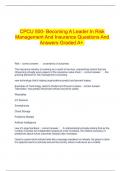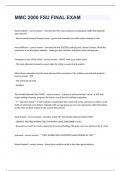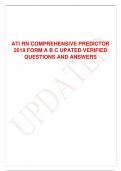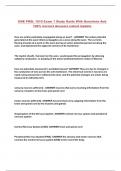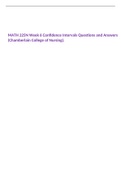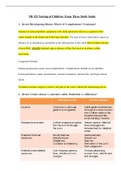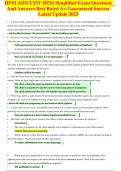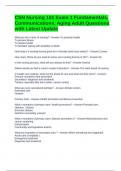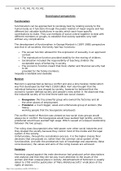Exam (elaborations)
CPCU 500- Becoming A Leader In Risk Management And Insurance Questions And Answers Graded A+.
- Course
- Institution
CPCU 500- Becoming A Leader In Risk Management And Insurance Questions And Answers Graded A+. Risk - correct answer. uncertainty of outcomes The insurance industry is evolving as a result of two key, overarching factors that are influencing virtually every aspect of the insura...
[Show more]
